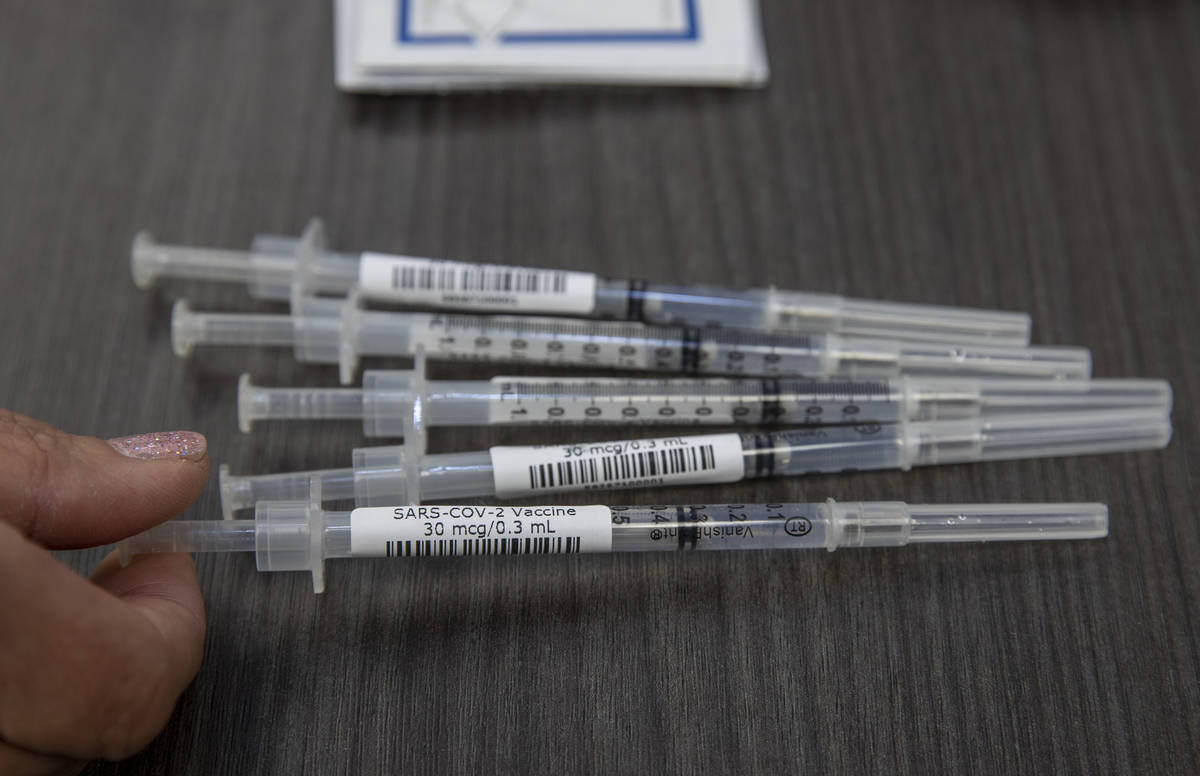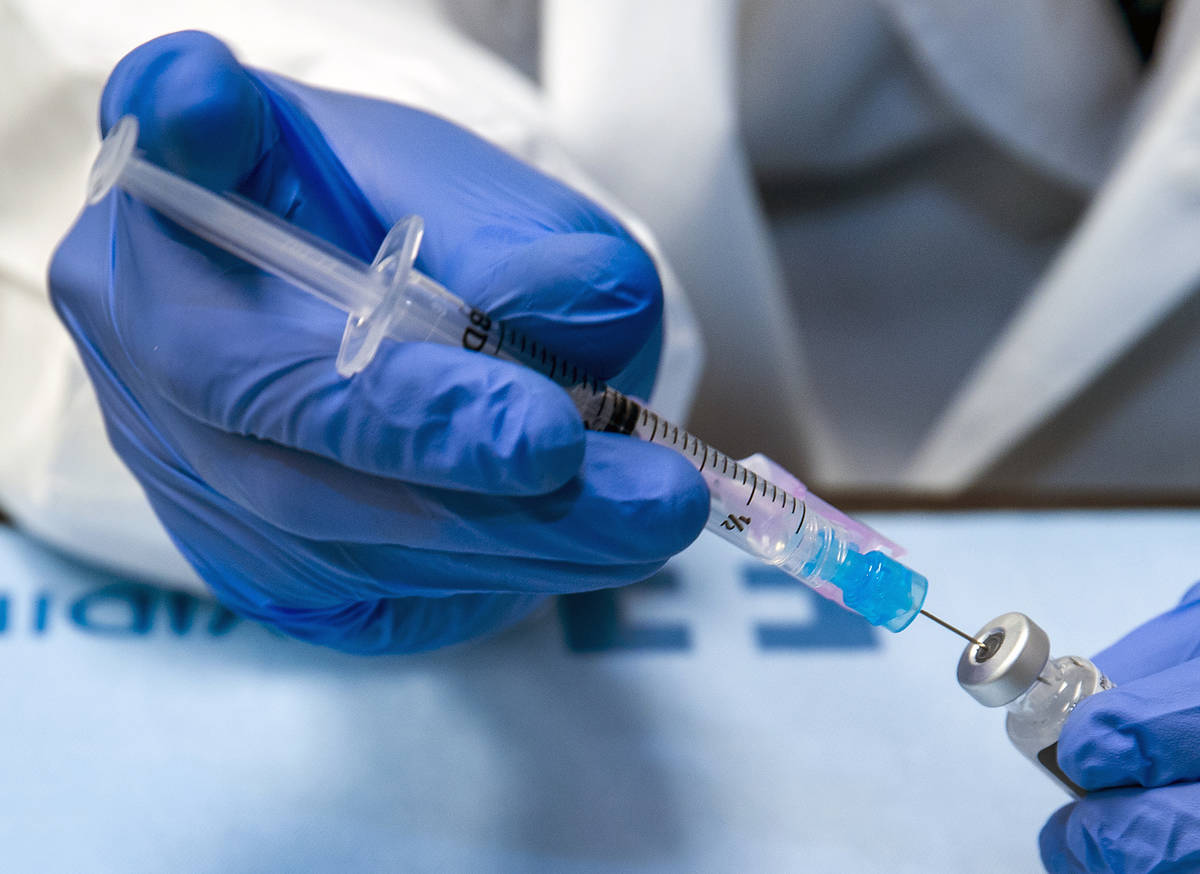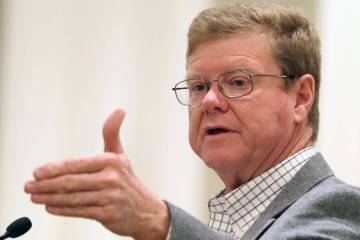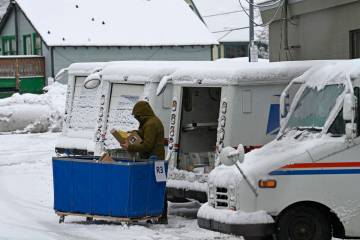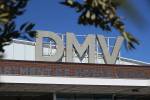Nevada expects 42% cut in COVID-19 vaccine doses next week
Nevada will receive 42 percent fewer doses of the Pfizer-BioNTech COVID-19 vaccine next week, one of 13 states reporting that their expected second shipments have been reduced by the federal government.
Gov. Steve Sisolak issued a news release late Thursday saying he and other state officials had expected to received 30,255 doses next week, the second week of vaccinations in the state, but were informed they should anticipate receiving 17,550 doses.
Sisolak blasted the reduction, which he said came without explanation.
“States needs clear and precise updates and information from the federal government as we continue the large and complex process of distributing this critical COVID-19 vaccine across the nation and here in Nevada,” he said in a statement. “To slash allocations for states — without any explanation whatsoever — is disruptive and baffling.”
“I look forward to a swift and thorough explanation from the federal government regarding this change in allocation. States across the country, not just Nevada, deserve a transparent and communicative partner in this effort,”
A dozen states other states have reported the federal government told them their shipments also will be less than originally projected, the Associated Press reported.
California and Washington are both expecting about a 40 percent reduction in the next vaccine allocation, it said. Missouri is expecting 25 percent to 30 percent less of the vaccine, and Michigan’s shipment will drop by about 25 percent.
Las Vegas’ University Medical Center was the first hospital in Nevada to receive the vaccine and begin inoculating people on Monday, as a 61-year-old clinical manager was the first to get the shot.
Both the Pfizer and Moderna vaccines require two doses, administered three to four weeks apart, to be fully effective.
Senior Trump administration officials on Thursday downplayed the risk of delayed vaccine shipments.
The two officials, who spoke to the AP on condition of anonymity to discuss internal planning, said states will receive their full allocations, but misunderstandings about vaccine supply and changes to the delivery schedule may be creating confusion.
One official said the initial numbers of available doses that were provided to states were projections based on information from the manufacturers, not fixed allocations. Some state officials may have misunderstood that, the official said.
The two officials also said that changes the federal government made to the delivery schedule, at the request of governors, may be contributing to a mistaken impression that fewer doses are coming. The key change involves spacing out delivery of states’ weekly allocations over several days to make distribution more manageable.
“They will get their weekly allocation, it just won’t come to them on one day,” one official said.
Pfizer made it clear that as far as production goes, nothing has changed.
In Nevada, doses are being distributed first to frontline health care workers, then staff and residents at long-term care facilities such as nursing homes. Most public health authorities have said the vaccine isn’t expected to be available to the general public before the spring or early summer.
UMC administered the vaccine to workers The St. Rose Dominican, Sunrise Health System and Valley Health System hospitals in the Las Vegas Valley also began administering the vaccine on Wednesday.
Contact Katelyn Newberg at knewberg@reviewjournal.com or 702-383-0240. Follow @k_newberg on Twitter. The Associated Press contributed to this report.



